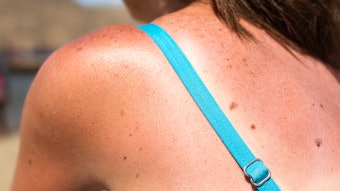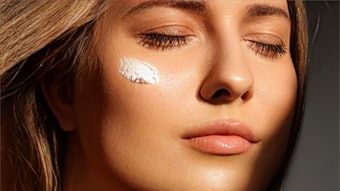Women are more likely to report use of indoor tanning facilities than men, and some characteristics common to indoor tanners differ by sex, according to a report in the December issue of Archives of Dermatology, one of the JAMA/Archives journals. However, few tanners—male or female—mention avoiding tanning beds when asked about ways to reduce skin cancer risk.
"Skin cancer is the most common form of malignancy in the United States. The American Cancer Society estimated that one million new cases of melanoma and non-melanoma skin cancer were diagnosed in 2009; 8,650 deaths were attributable to melanoma skin cancer," the authors write as background information in the article. "Despite a recent meta-analysis that supported a positive association between increased use of indoor tanning and both melanoma and non-melanoma skin cancers, the indoor tanning industry is still growing rapidly, generating more than $5 billion in annual revenues, and has attracted more than 30 million patrons, primarily women."
To describe the prevalence and characteristics of indoor tanning among U.S. adults, Kelvin Choi, PhD, of the University of Minnesota, Minneapolis, and colleagues analyzed data from the Health Information National Trends study, conducted in 2005. A total of 2,869 participants who were white and aged 18 to 64 years answered questions about demographics, lifestyle factors and their use of indoor tanning. A subset of 821 participants was also asked about skin cancer prevention knowledge and attitudes.
Overall, 18.1% of women and 6.3% of men reported using indoor tanning facilities during the previous 12 months. Women who tanned were more likely to live in the Midwest or South and also use spray tanning products, whereas those who did not report using indoor tanning were older, had less education, earned lower incomes and used sunscreen regularly. Men were less likely to report indoor tanning if they were older and obese and more likely to do so if they used spray tanning products and lived in metropolitan areas.
"The association between spray tanning product use and indoor tanning use in the past 12 months was strong in women and men, significantly more so in men," the authors write. "Our finding suggests that, instead of substitution, women and men use both means to obtain a tan-looking appearance."
When asked in an open-response format about ways to prevent skin cancer, the most commonly suggested method by both women and men was wearing sunscreen, followed by avoiding the sun and wearing a hat. Only 13.3% of women and 4.2% of men suggested avoiding tanning bed use. In addition, 5.8% of women and 5.6% of men reported that they should be evaluated for skin cancer.
"It is concerning that only a small proportion of adults reported avoidance of indoor tanning bed use to prevent skin cancer," the authors write. "Perhaps people are confused by the messages from the indoor tanning industry on possible benefits of indoor tanning, e.g. getting vitamin D from moderate exposure to artificial UV radiation. This possibility is also suggested by the fact that women and men who suggested sunscreen use as a method to reduce their skin cancer risk were more likely to have tanned indoors."
"Strategies such as clinician-patient communication and media campaigns that focus on strategically disseminating the harms of indoor tanning to the adult population may be needed to reduce the prevalence of indoor tanning among adults in the United States," they conclude.
Story Source: The above story is reprinted (with editorial adaptations by ScienceDaily staff) from materials provided by JAMA and Archives Journals.
Journal reference
1. Kelvin Choi; DeAnn Lazovich; Brian Southwell; Jean Forster; Sharon J. Rolnick; Jody Jackson. Prevalence and Characteristics of Indoor Tanning Use Among Men and Women in the United States. Arch Dermatol, 2010; 146 (12): 1356-1361 DOI: 10.1001/archdermatol.2010.355










